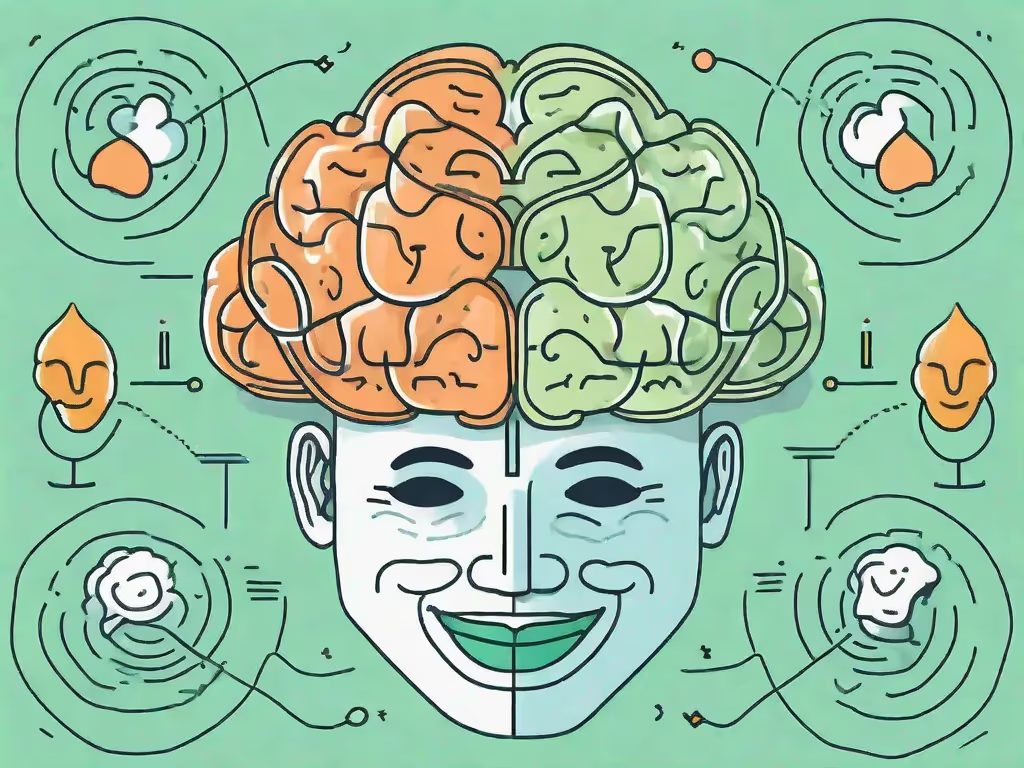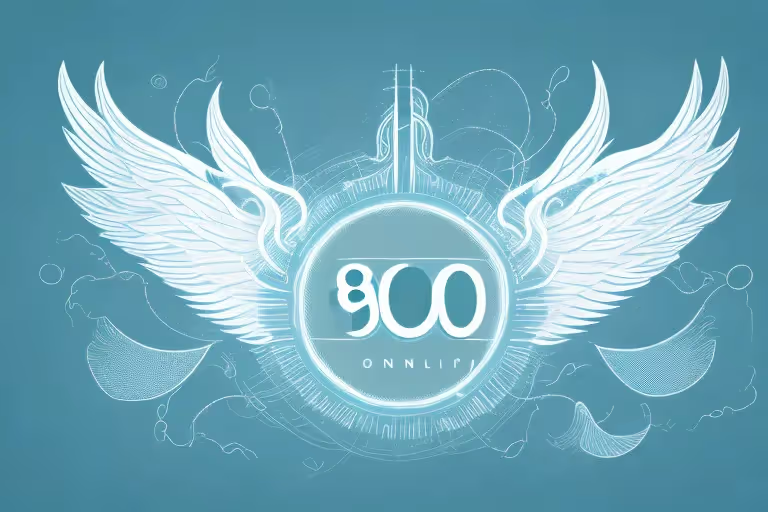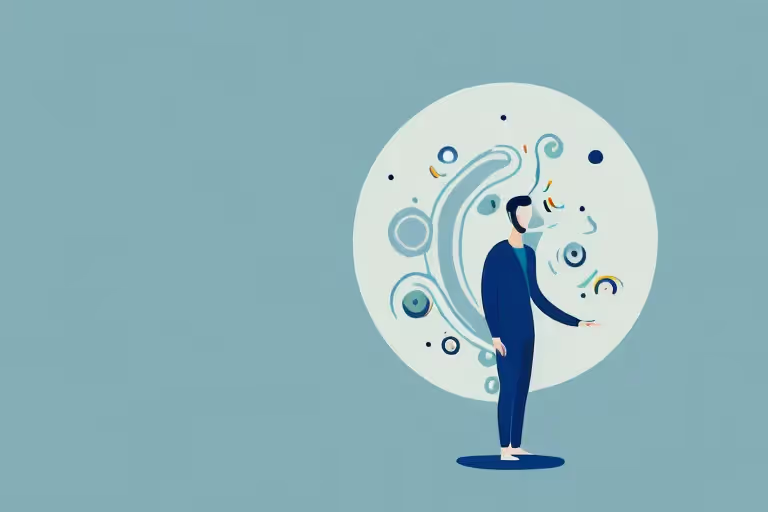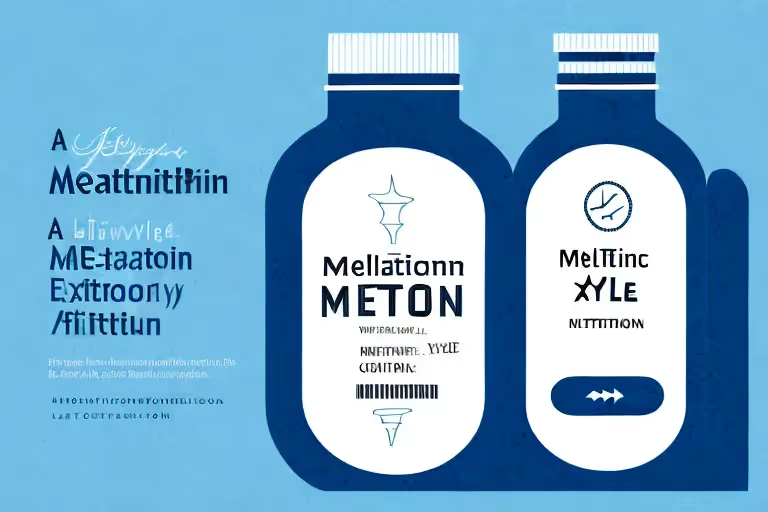Laughter is a fascinating and complex phenomenon that has been a subject of scientific curiosity for centuries. While we often associate laughter with joy and humor, there is another type of laughter that might not be as cheerful - nervous laughter. In this article, we will explore the science behind nervous laughter, its biological and psychological underpinnings, its impact on health, and techniques to manage it.
Understanding Laughter: A Biological Perspective
Laughter is more than just a response to something funny; it is a complex physiological and psychological phenomenon. Scientists have discovered that laughter originates in the brain, specifically in the area responsible for emotions and reward processing. But what happens in our brain when we laugh?
When we experience something amusing, the brain releases various neurotransmitters, including dopamine and endorphins. These chemicals create a sense of pleasure and reward, and they contribute to the feelings of happiness associated with laughter. The release of dopamine, often referred to as the "feel-good" neurotransmitter, is particularly significant in the experience of laughter. It not only enhances our mood but also plays a role in motivation and reinforcement. Endorphins, on the other hand, act as natural painkillers and can induce a sense of euphoria.
Additionally, laughter stimulates the prefrontal cortex, which is the part of the brain responsible for decision-making and social behavior. This stimulation can lead to improved cognitive function and enhanced social interactions. It is no wonder that laughter is often considered a universal language that brings people together.
The Brain and Laughter: An Intricate Connection
Laughter's connection to the brain goes beyond the release of neurotransmitters. Research has shown that laughter also activates various regions of the brain, including the amygdala and the hippocampus. The amygdala, known for its role in processing emotions, is responsible for the initial detection of humor and the initiation of the laughter response. The hippocampus, on the other hand, plays a crucial role in memory formation and retrieval. This means that laughter can have a positive impact on our ability to remember and recall information.
Furthermore, studies have revealed that laughter can promote neuroplasticity, which is the brain's ability to reorganize and form new connections. Regular laughter has been associated with increased brain volume in areas related to emotional regulation and social cognition. This suggests that laughter not only brings joy but also has long-term benefits for our brain health.
The Role of Hormones in Laughter
Besides neurotransmitters, hormones also play a significant role in laughter. Researchers have found that laughter triggers the release of stress-reducing hormones, such as cortisol and oxytocin. Cortisol, commonly known as the "stress hormone," is involved in the body's stress response. However, during laughter, cortisol levels decrease, leading to a reduction in stress and anxiety. Oxytocin, often referred to as the "love hormone," is associated with social bonding and trust. When laughter triggers the release of oxytocin, it promotes feelings of connection and strengthens social relationships.
Moreover, laughter has been shown to have a positive impact on the immune system. It increases the production of antibodies and activates immune cells, thus enhancing our body's defense against infections and diseases. This suggests that laughter not only brings joy but also contributes to our overall well-being.
Nervous Laughter: More Than Just a Giggle
Nervous laughter is a peculiar phenomenon that occurs in situations of discomfort, anxiety, or tension. It is often an involuntary response that emerges when we are faced with stressors, embarrassment, or uncertainty. But why do we laugh when we are nervous?
When it comes to the psychology behind nervous laughter, there are several theories that attempt to explain this intriguing phenomenon. Psychologists suggest that nervous laughter serves as a coping mechanism, a way for our bodies to release tension in high-stress situations. It can temporarily alleviate anxiety and provide a sense of relief.
Moreover, laughter can serve as a social cue, signaling to others that we are not a threat and attempting to establish rapport. In a way, nervous laughter acts as a defense mechanism, allowing us to navigate social interactions more smoothly. It helps to break the ice and create a sense of camaraderie, even in the midst of discomfort.
The Psychology Behind Nervous Laughter
But what exactly happens in our brains when we experience nervous laughter? Research suggests that laughter is regulated by the limbic system, which is responsible for processing emotions. When we encounter a stressful or anxiety-inducing situation, the amygdala, a key player in the limbic system, is activated. This triggers a cascade of neural responses that ultimately lead to laughter.
Interestingly, the same neural pathways that are involved in processing fear and anxiety are also involved in generating laughter. This suggests that nervous laughter may be a way for our brains to reframe negative emotions and transform them into something more manageable. It's almost as if our brains are saying, "Hey, let's find the humor in this situation and lighten the mood!"
Nervous Laughter as a Social Phenomenon
On the other hand, nervous laughter is not solely an individual response; it also has a social dimension. In group settings, nervous laughter can be contagious and spread among individuals as an attempt to diffuse tension and maintain social cohesion. This social aspect of nervous laughter highlights its role in interpersonal dynamics.
When we laugh nervously in a group, it can create a shared experience that helps to bond people together. It's a way of saying, "We're all in this together, let's find some humor in it." This shared laughter can act as a form of social glue, strengthening relationships and fostering a sense of unity.
Furthermore, nervous laughter can also be influenced by cultural factors. Different cultures may have varying norms and expectations when it comes to expressing emotions, including laughter. In some cultures, nervous laughter may be more prevalent as a way to navigate social hierarchies or diffuse uncomfortable situations.
In conclusion, nervous laughter is a fascinating and complex phenomenon that goes beyond a simple giggle. It serves as a coping mechanism, a social cue, and a means of establishing rapport. Understanding the psychology behind nervous laughter can shed light on how we navigate stressful situations and connect with others on a deeper level.
The Impact of Nervous Laughter on Health
While nervous laughter may help in certain situations, its impact on health should not be overlooked. Chronic nervous laughter, especially when associated with underlying anxiety or psychological distress, can have both physical and mental health consequences.
Physical Effects of Nervous Laughter
Continual nervous laughter can lead to physical symptoms such as muscle tension, fatigue, headaches, and even respiratory issues. The strain on the body caused by prolonged stress and tension can have detrimental effects on our overall well-being.
Mental Health and Nervous Laughter
Beyond the physical effects, nervous laughter is closely linked to mental health. It can be a manifestation of anxiety disorders, social phobia, or even post-traumatic stress disorder. Recognizing the connection between nervous laughter and mental health is crucial in addressing underlying issues and seeking appropriate support.
Techniques to Control Nervous Laughter
Fortunately, there are strategies to manage nervous laughter and regain control in stressful situations. Implementing mindful practices and behavioral techniques can help individuals navigate uncomfortable moments with more ease.
Mindfulness and Nervous Laughter
Mindfulness, the practice of being present and aware of one's thoughts and emotions, can be effective in reducing nervous laughter. By cultivating mindfulness, individuals can develop a greater sense of self-awareness and learn to respond to stressors in a more grounded manner.
Behavioral Techniques for Managing Nervous Laughter
In addition to mindfulness, behavioral techniques such as deep breathing exercises, visualization, and positive self-talk can help alleviate nervous laughter. These techniques help redirect the focus from anxiety-inducing thoughts to more calming and constructive ones.
The Future of Laughter Research
Laughter research is an evolving field, and scientists are continually exploring new avenues to better understand this intricate phenomenon. Current trends in laughter studies include investigating laughter's impact on social interactions, its potential therapeutic applications, and its influence on overall well-being.
Current Trends in Laughter Studies
Recent data shows that laughter has a profound impact not only on our individual experiences but also on our social dynamics. Researchers are investigating how laughter functions as a powerful tool to strengthen connections, promote empathy, and enhance interpersonal relationships.
Potential Applications of Laughter Research
The findings from laughter research can have practical implications in various fields, such as mental health therapy, education, and even workplace settings. Understanding the mechanisms behind laughter may enable the development of innovative interventions and strategies to enhance well-being and foster positive environments.
Despite the complexities of laughter, one thing is clear - it plays a significant role in our lives and has a tremendous influence on our physical and mental well-being. Recognizing the science behind nervous laughter opens up opportunities for personal growth, overcoming social obstacles, and improving our overall quality of life. So the next time you find yourself chuckling nervously, remember that it is not just a simple giggle but a biological response intertwined with our emotional and social worlds.
Aura is Your All In One App for Meditation, Mindfulness Wellbeing
Find peace every day with one app for your whole well-being. There is no one-size-fits-all solution to mental well-being. Aura is the first all-in-one wellness app that learns how to best help you. Discover an endless library of expert-created tracks for your well-being, all taught by the world’s best coaches, therapists, and storytellers. With Aura's personalized recommendations, you can find peace every morning, day and night.



.webp)






.avif)

%20(1).avif)


.avif)
.avif)
.webp)


.avif)


















































































































.avif)

















.svg)






.avif)


